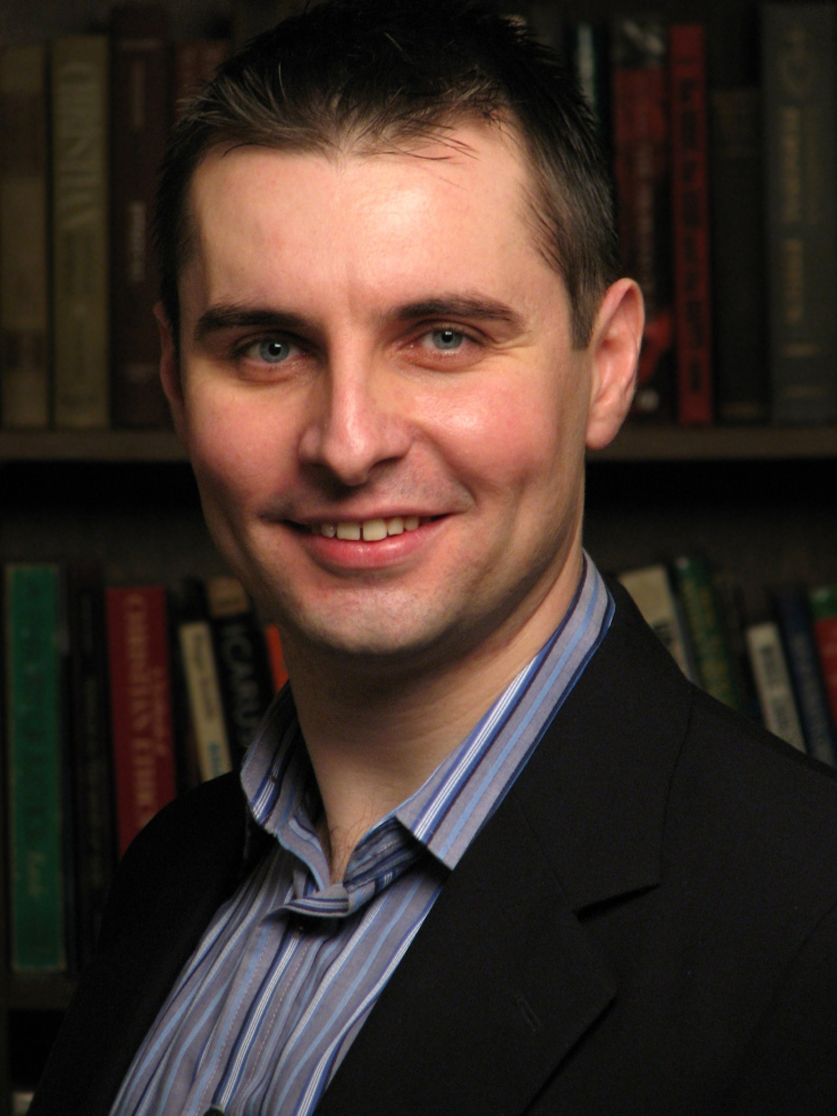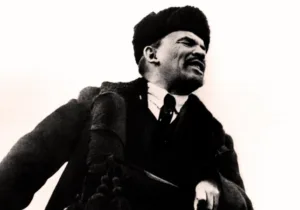In my introductory article on Václav Havel, I suggested that the life and work of this “prophet to America” deserve our attention because in them we can find a solid ethical voice and unique moral inspiration for our individual and collective lives. Witnessing Russia’s invasion of Ukraine, we even more painfully realize how prescient Havel was in 1990 when he made the seemingly absurd plea to a joint session of the United States Congress for America to help what was then the Soviet Union on the road to democracy. Although reflecting on Havel’s views of the ideal role of the US in the world would be undoubtedly intriguing and illuminating, this series will focus primarily on how Havel can help us face radical left ideologies here at home.
The first point worth underscoring in Havel’s moral legacy is the concept of “living in truth,” which he learned from the Czech philosopher Jan Patočka, to whom the playwright also dedicated his influential essay “The Power of the Powerless.” Living in truth was Havel’s basic answer to the problem of falsehood, one of the defining characteristics of the ideology and regime that ruled Czechoslovakia until 1989. Havel knew from both history and personal experience that when truth falls, evil triumphs soon after. Truth was the first casualty of communism, followed by more than 100 million other victims.
Since the 1917 Bolshevik Revolution in Russia, communists implemented the philosophy differently in various countries. But regimes could introduce and maintain the ideology only through evil means and methods, partially due to humans’ natural yearning for freedom. In Czechoslovakia, the communist regime used indoctrination, propaganda, censorship, surveillance, intimidation, and persecution to sustain its domination over the population and pursue its utopian vision of a classless, stateless, and religionless society inhabited by the “new man.” They demanded obedience, expected conformity, and punished dissent.
A particular problem in our society was the corrupt media, which did not seek or speak the truth but was an ideological instrument of the state apparatus. Václav Havel encountered the concept of “fake news” in his country long before it became a commonplace term in the West. To illustrate, on January 20, 1977, Czechoslovak television featured a report titled Kdo je Václav Havel? (Who is Václav Havel?) in primetime. The same question was later interrogated on national radio and in major newspapers. The communist-controlled media was not interested in providing an objective answer, solely intending to discredit the man who had helped found a civic initiative committed to the defense of basic human rights: Charter 77.
In every totalitarian regime, some people are wholeheartedly committed to seeking and speaking the truth. They are usually a small group of individuals who came to be known as “dissidents.” Together with another minority—political ideologues—they alone know what is “really” going on. Due to their disloyalty, dissidents present a serious threat to the regime, and the ruling class goes to great lengths to eliminate or neutralize their voices to keep power. In Czechoslovakia, a massive campaign was launched to discredit authors and signatories of a document called Charter 77, unfairly calling them “traitors,” “imposters,” and “servants of imperialism,” who were guilty of “subversion of the republic.”
Considering the culture of lies that communist ideology created and communist power maintained, it is no coincidence that Havel’s first inaugural address to the nation begins:
For 40 years on this day you heard, from my predecessors, variations on the same theme: how our country flourished, how many million tons of steel we produced, how happy we all were, how we trusted our government, and what bright perspectives were unfolding before us. I assume you did not propose me for this office so that I, too, would lie to you.[i]
The rest of Havel’s remarkable speech contains the truth as he best understood it.
Maybe surprisingly for some, there was no communist-bashing or avoidance of personal responsibility in the speech. Without castigating yet with moral clarity, Havel reminded fellow citizens of an uncomfortable truth: “We had all become used to the totalitarian system and accepted it as an unalterable fact of life, and thus we helped to perpetuate it. In other words, we are all—though naturally to differing extents—responsible for the operation of the totalitarian machinery. None of us is just its victim: we are all also its cocreators.”[ii] This was neither “victim blaming” nor absolving communist leaders of their guilt. It was an honest acknowledgment of a complex and painful reality.
Havel, diagnosing the health of his nation’s soul, added an important specification: “We fell morally ill because we got used to saying something different from what we thought.”[iii] This was a manifestation of the failure to live in truth. Those who had the ears of their consciences open heard the true words of the prophet who unexpectedly became president. For those whose minds can strain beyond the siren’s song of ideology today, four decades of non-freedom in Czechoslovakia will be a lesson well-learned.
In the United States, the Communist Party does not rule, but as leftist ideologies are increasingly making inroads, it is becoming more difficult to “live in truth” without facing consequences. At the beginning was “political correctness”—a construct and trend that the far left understandably denies exists and the far right unnecessarily weaponizes. It has been a negative and even oppressive influence in education, business, art, media, and politics, a destructive force undermining the freedom pillar of American society. This is not to say that we should ignore the need for greater civility in this country and our obligation to treat all people with respect.
The greatest ideological threat to freedom in America today are “critical theories,” which in the name of “social justice” are being uncritically accepted and implemented into our legal, educational, and political system. The intellectual roots of these theories are found in Marxism and postmodernism, and their goal similarly to communist ideology is to “overthrow” the old order of things so that a brighter future—a new world of “diversity, equity and inclusion”—can emerge. From the perspective of America’s future, the most sinister and dangerous among them is “critical race theory,” which assaults our nation’s founding principles, devalues our history, undermines our institutions, and disunites our country.
The aforementioned and other critical theories will not prevail in this country only if a sufficiently large number of people commit to “living in truth.” John McWhorter’s book Woke Racism: How a New Religion Has Betrayed Black America can be viewed as the fruit of such a commitment. The author exposes the pathologies of wokeism as it relates to race and is not afraid to speak the truth as he sees it. McWhorter is right on target when he writes, “Unbeautiful but real. Third Wave Antiracism exploits modern Americans’ fear of being thought racist to promulgate not just antiracism, but an obsessive, self-involved, totalitarian, and utterly unnecessary kind of cultural reprogramming” (emphasis added).[iv]
Fear, mentioned in the above citation, is often the most formidable obstacle that those who want to “live in truth” must overcome. Its paralyzing power must be successfully countered if freedom is to be preserved for future generations. Havel’s moral legacy provides a compass to point us forward, and we will reflect on it in the next article, which will focus on “choosing courage.” But even courageous people—especially when they subscribe to the Christian realist tradition—recognize that the moral principles such as “living in truth” cannot always be applied to real life situations in a straightforward manner and should always be exercised within a larger framework of ethics of responsibility.
This is especially true in the realm of politics. Václav Havel is an exceptional prophet also because, thanks to unprecedented circumstances, he became the president of his own country, which protected him from shallow moralism when it came to “living in truth.” Guided by a “higher responsibility,” he understood the tension that existed between ideals and reality and refused to abandon the former or ignore the latter. The following reflection is worth quoting in full:
Clearly, a dissident intellectual who philosophizes in his study about the fate and future of the world has different opportunities, a different position, a different kind of freedom, than a politician who moves among the complicated social realities of a particular time and place, constantly coming up against the intractable and contradictory interests that inhabit that time and space. But a person who is sure of the values he believes in and struggles for, and who knows he simply cannot betray them, is usually able to recognize the degree of compromise permissible in the practical application of his ideals, and to know when a risk becomes more than he can take upon himself.[v]
Whatever our position or circumstances, we are called to understand (and Havel can help us in this) the meaning of the phrase “living in truth” and attempt to approximate it to the best of our abilities in the contexts that we find ourselves. For it is “the truth that will set you free” (Jn 8:32), and it is “living in truth” that will keep us free.
[i] Václav Havel, The Art of Impossible: Politics as Morality in Practice, translated by Paul Wilson and others (New York: Alfred A. Knopf, 1997), 3.
[ii] Ibid., 4.
[iii] Ibid.
[iv] John McWhorter, Woke Racism: How a New Religion Has Betrayed Black America (New York: Porfolio/Penguin, 2021), 15.
[v] Václav Havel, Summer Meditations, translated by Paul Wilson (New York: Alfred A. Knopf, 1992), 99-100.






